Call of Duty: World War II is bad. That’s an understatement. World War II is the worst Call of Duty game ever released. The first person shooter series that was once the pinnacle of action games has fallen hard in recent years and—though this newest installment is selling better than the previous entry—returning to the franchise’s historical roots has only exposed how bad the game has gotten. Nowhere is this more apparent than in the game’s opening minutes when it tries—and fails—to recapture the glory of Medal of Honor: Allied Assault’s Normandy invasion mission.
Fifteen years ago, publisher Electronic Arts released designer Jason West and Vince Zampella’s Medal of Honor: Allied Assault. The two would go on to leave EA, found Infinity Ward and create Call of Duty. Allied Assault was basically the first Call of Duty game and it was magnificent.
Videos by VICE
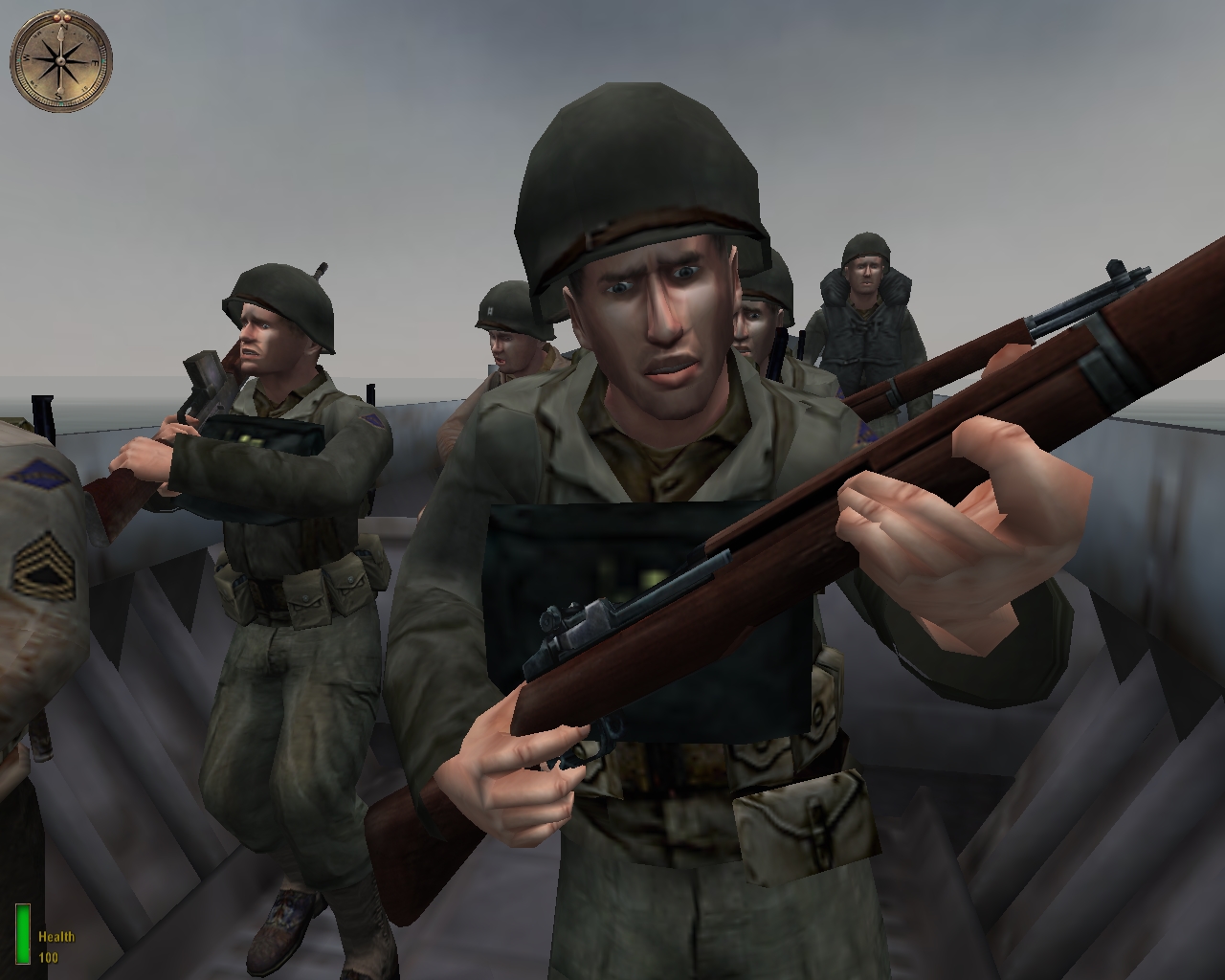
The standout level came halfway through the campaign when the game tasked players with taking part in Operation Overlord—the Allied Invasion of mainland Europe through beaches in France. With little information of what to do or what to expect, players rode a troop transport ship up to the beach, watched the gate come down, and struggled to survive.
The first time I played it back when it released in 2002, I died in a barrage of German gunfire the moment the front of the ship opened. It was unforgiving.

Call of Duty: World War II opens its campaign with an assault on Normandy beach that plays out much like the one from Allied Assault. Players crash into a beach, dodge bullets, use a Bangalore torpedo to clear barbed wire, and clear out German bunkers. It looked good but it felt off. For one thing, it was far too easy. I cleared the beach and most of the bunkers before dying to a quick time event—a scripted cinematic where the player has to push buttons at the right time not to die—just before the end of the mission.
It seemed so lackluster compared to my memory of the horror of Allied Assault’s Normandy mission that I had to go back to check and make sure I wasn’t succumbing to Nostalgia. Spoilers: I was not.
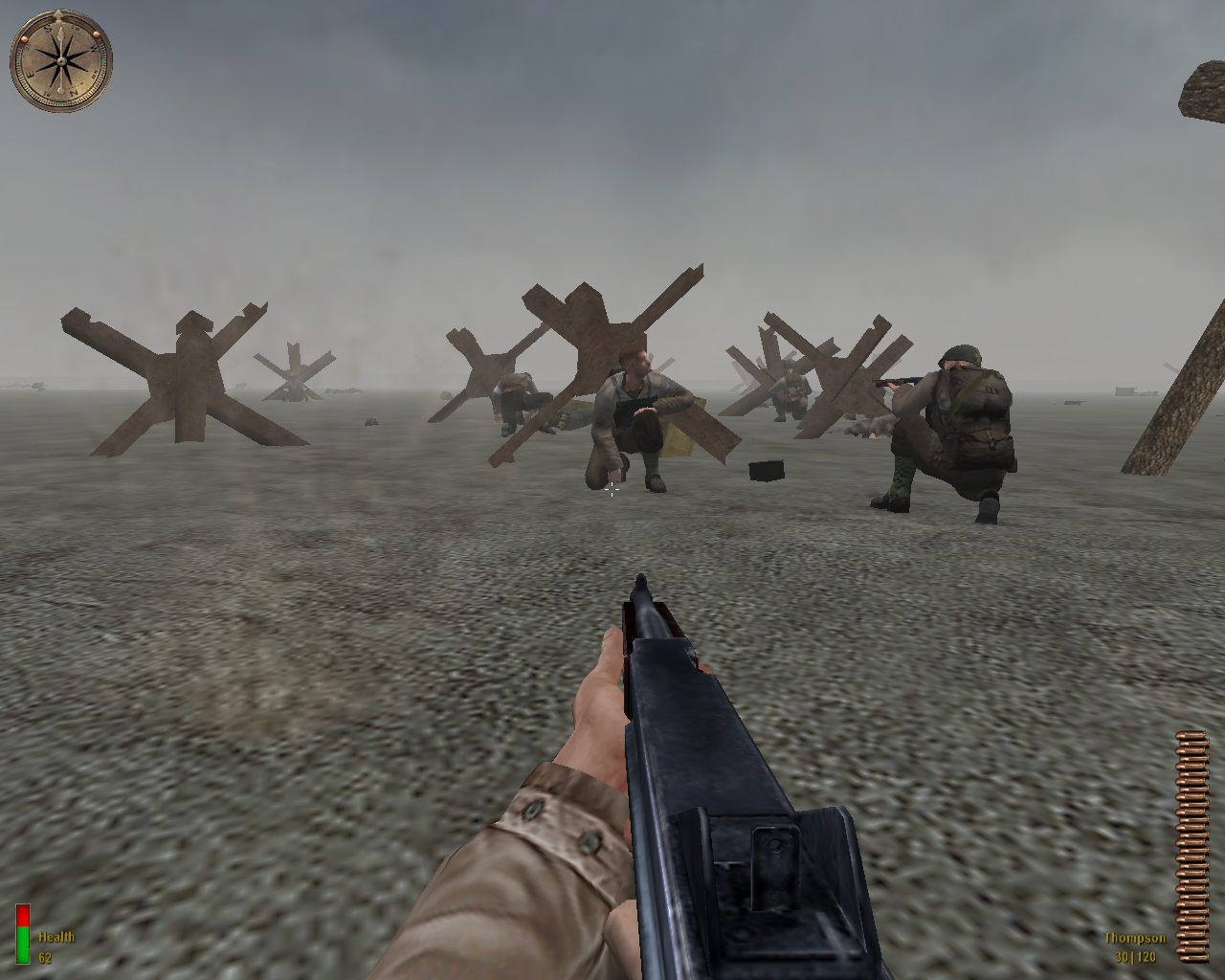
Even fifteen years later, Allied Assault’s Normandy mission is harrowing. The gates drop, you rush the beach and desperately try to find cover. People are shouting, bullets fly by, and you’re never sure if you’ve got enough time to make it to the next bit of cover. Nowhere felt safe and that’s because nowhere was safe. It felt like a chaotic war zone filled with blood, explosions, and bodies.
Through trial and error—dying, always dying—I managed to scramble my way up the beach and find a cozy spot along a wall of barbed wire. A kind medic handed me a health kit and I hunkered down the other soldiers, waiting to be told what to do.
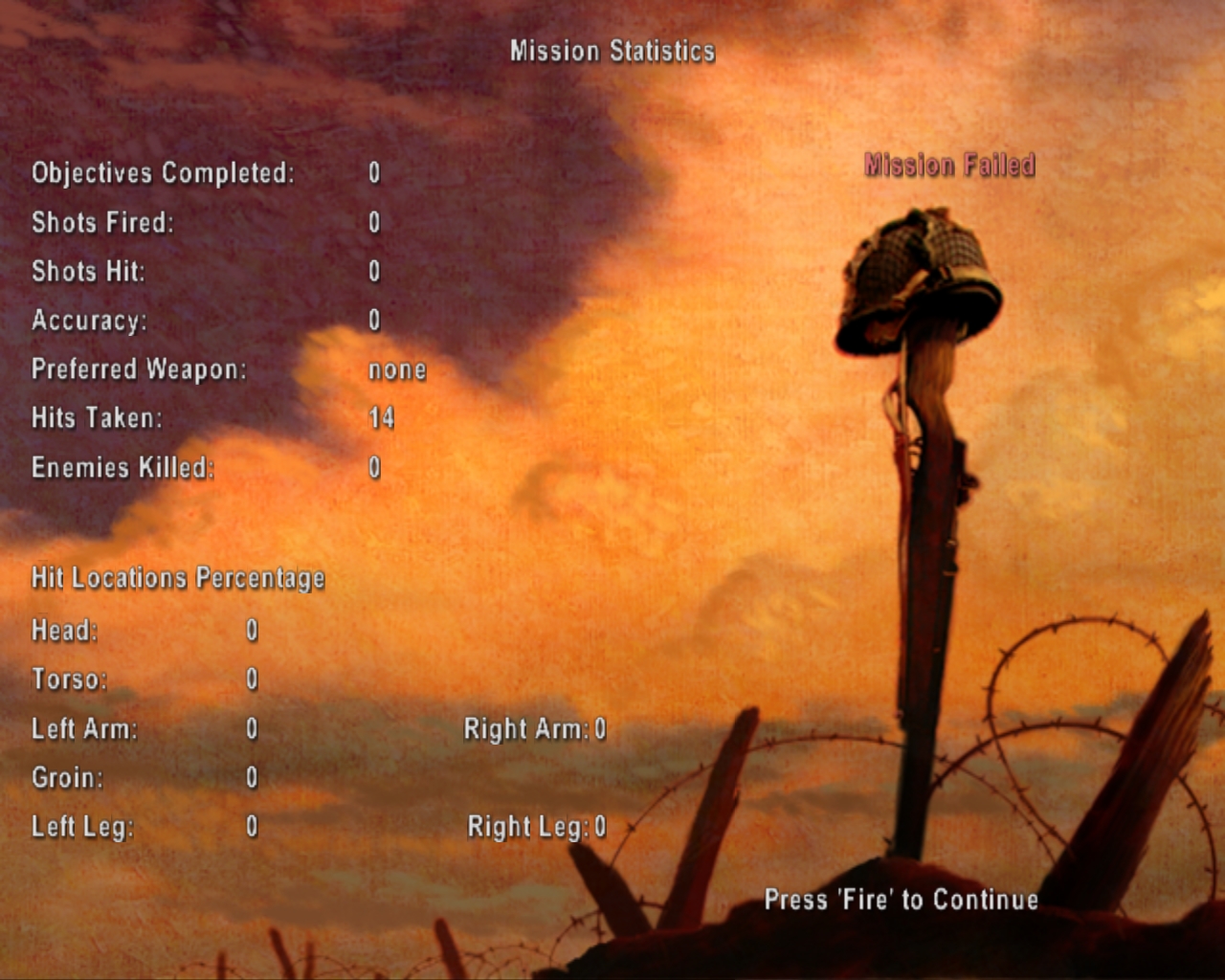
To progress, I needed to use a Bangalore torpedo to blow up the barbed wire wall and open up the next part of the level. There was a catch though, the Bangalore’s were back down the beach. I had to leave the relative comfort of the barbed wire to grab the missiles, open up fence, and proceed to a mind field overseen by Germans on machine guns.
I died again. A lot. This was where I gave up in my replay. I hit a bunker wall with three other soldiers. We had to cross a minefield while Germans peppered us with machine gun fire. The goal was to keep the Germans at bay long enough to cross the field and start clearing out the enemy bunkers. I couldn’t do it. It was just too damn hard.

Hard, but fun. That’s the thing about the Normandy level in Allied Assault. It was hectic and crazy and hard but a total blast to play. The game gives players just enough direction in the form of shouts from other soldiers to let them figure out how to navigate the war zone, but doesn’t hold their hand through its rendition of one of the deadliest amphibious assaults in military history.
By contrast, Call of Duty gives players obvious directions by throwing arrows and waypoints on the user interface. The player is never lost and always knows exactly where to go and how far away the next objective is.
Allied Assault’s designers spent the two previous missions teaching the player the game’s systems and trusted them to make it through the difficult obstacle course of gunfire, mines, and death they had crafted. It never felt unfair, just unforgiving.
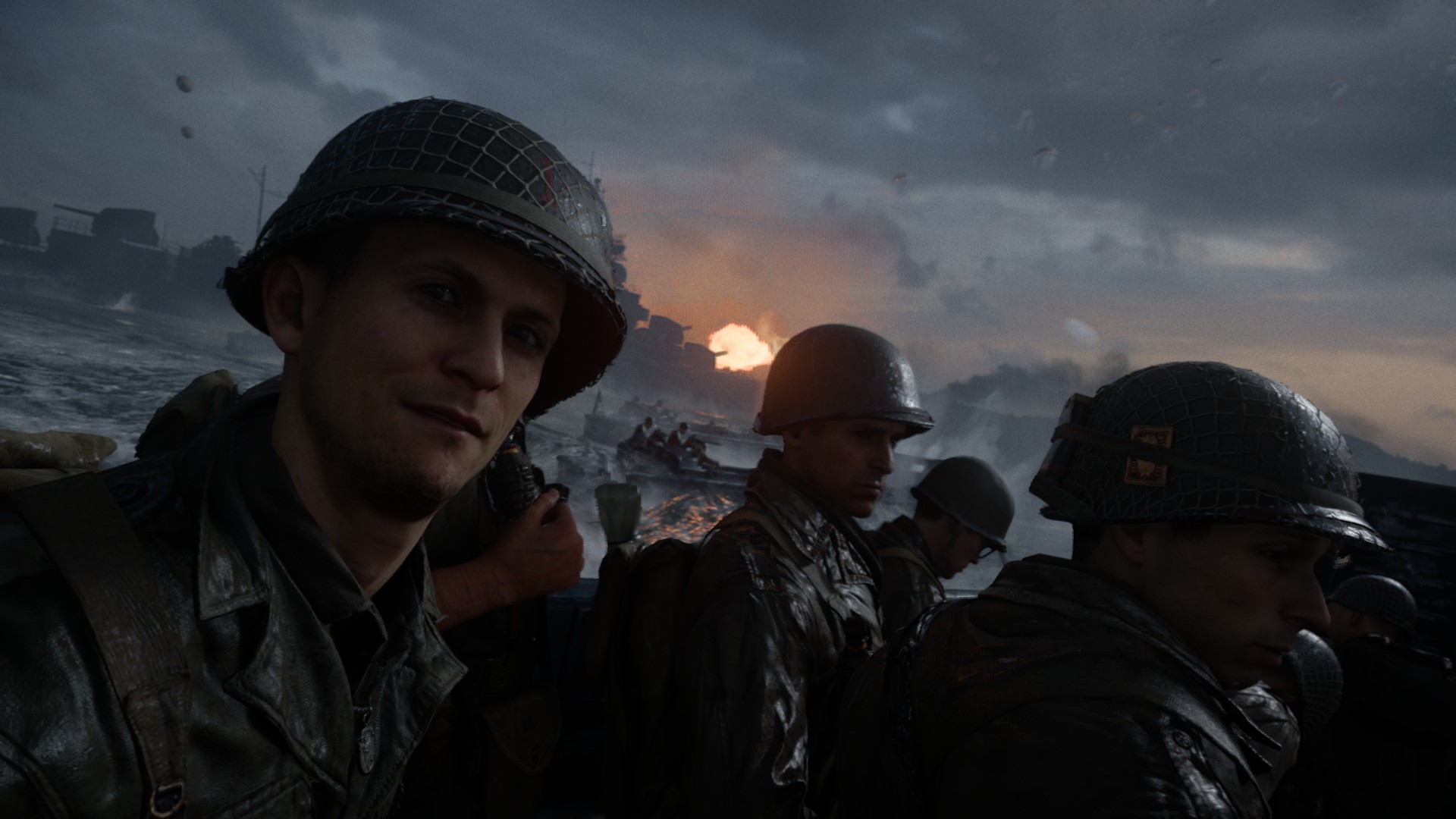
Not so in Call of Duty: World War II. You don’t play the new Call of Duty so much as you watch it unfold like you would a poorly written episode of Band of Brothers. Just like in Allied Assault, players storm the beach, blow up the barbed wire wall, and storm the bunkers. Unlike Allied Assault, the whole thing is done in a series of heavily directed gameplay segments interspersed with cutscenes and quick time events.
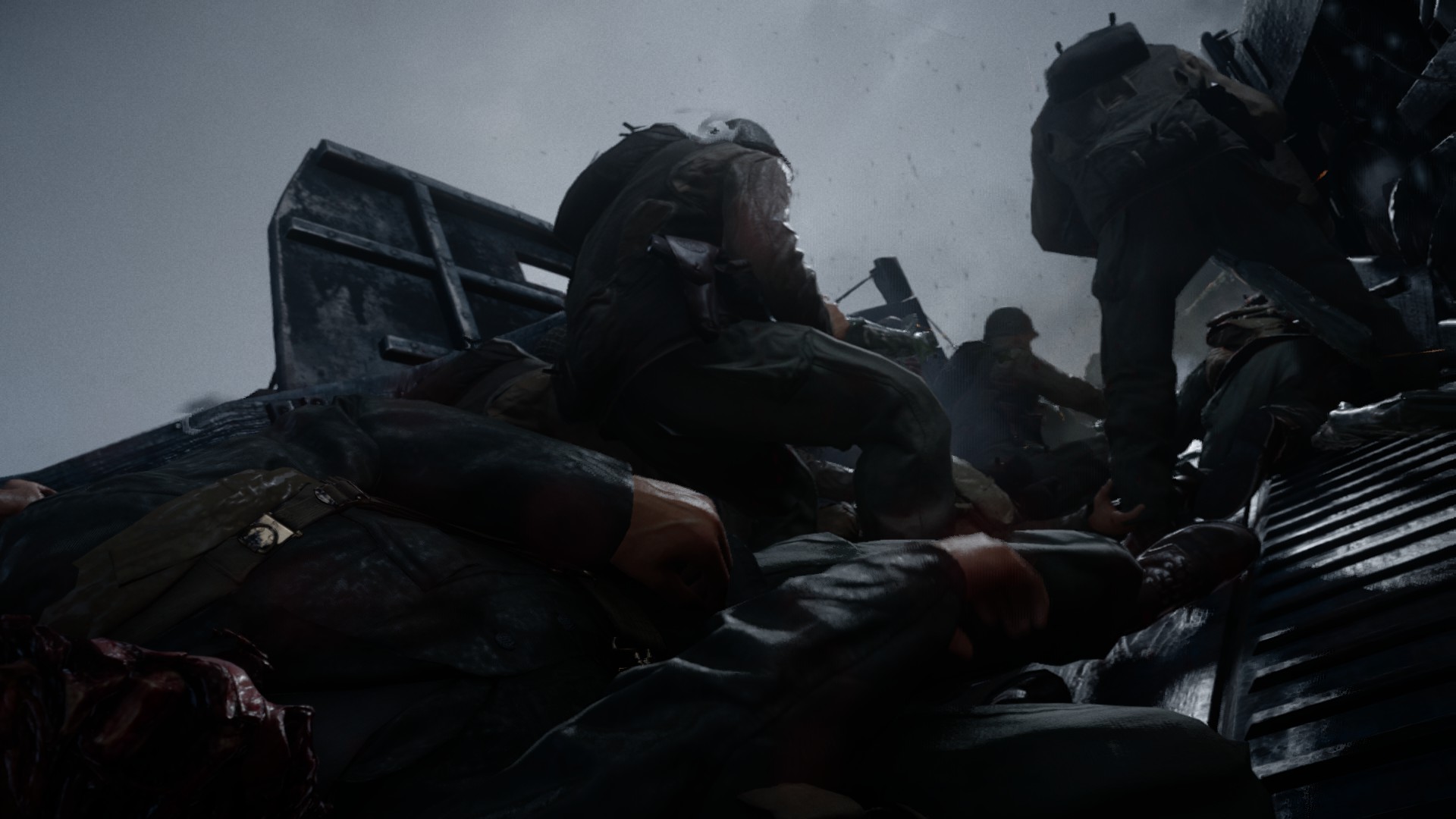
The gameplay differences are stark. Call of Duty looks much better than Allied Assault but that’s the only improvement. The boat crashes, you end up in the water but you’re in little danger of dying. Your commanding officer drags you onto the beach and, in a scripted scene, you pick up the Bangalore you’ll use to destroy the barbed wire fence.

Here, the game finally sets you loose and lets you dodge bullets to find cover. I never died. Not once. Call of Duty has been a linear, on-rails shooter for years but World War II is worse, and when compared with the game that popularized this particular flavor of the military shooter, Allied Assault, it becomes clear just how far the games have strayed from portraying war by letting players do things to portraying war by letting them watch. The new game often feels like watching a movie instead of playing a game.
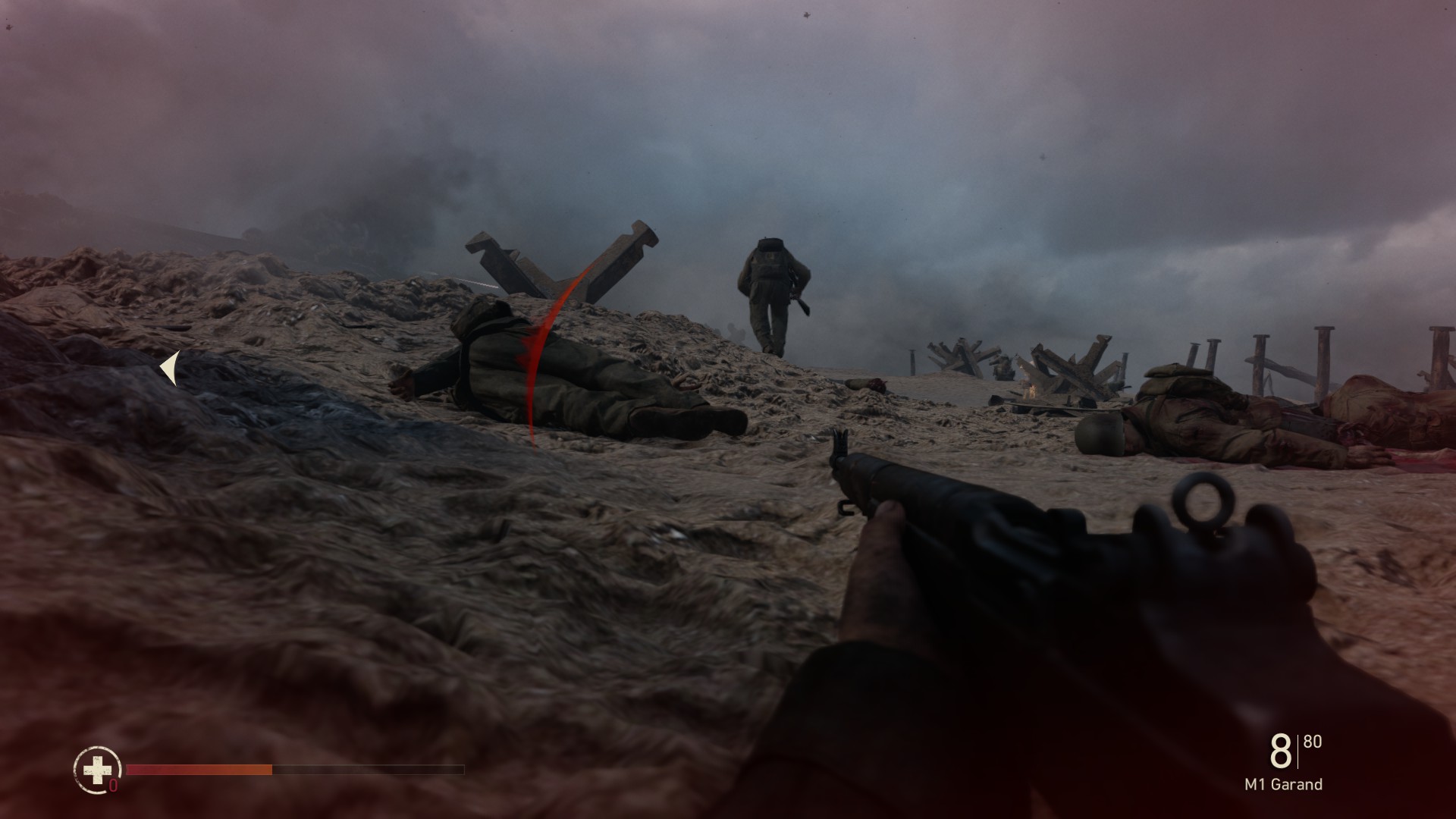
I played through the Normandy mission in World War II twice and both times I felt invincible. I cleared the beach and started killing bunker Nazis in five minutes both times. When I died in Call of Duty, I feel frustrated because the inevitable end of the campaign has been delayed. When I died in Allied Assault, I felt the pressing need to do better and conquer a challenge.

This feeling of watching a movie persists across the whole game. The player walks between scripted events, listens to people spout cliches such as “You’re a long way from Texas, farm boy,” and spend far too much time bashing the F key or moving the Mouse to fulfill a quick time event than they should in a first person shooter.

Call of Duty games has been in decline for years now, but they’ve always been serviceable, dumb fun. This is the first year where I felt as if the game was completely wasting my time. It wants to cash in on the nostalgia of Allied Assault’s Normandy level without doing anything of the things that made said level interesting.
That original Normandy level was striking, and recreated in so many games since because it dropped players on the beach and told them to figure it out or die. This is not a thing that big budget video games do often, and it was a great instance in which game design kinda sorta managed to serve a history lesson. I died on that beach as soon as the door to the boat opened, while diving for cover, and while crawling in the water, because that’s how people died there. It made me think about how—if I couldn’t reload an earlier save—I couldn’t survive on that beach for even a minute. The video game was basically saying: “You’d be so screwed if this wasn’t a video game.”
There’s no chaos, danger, or fun in Call of Duty: World War II. This is what Call of Duty is now—a joyless slog through cutscenes you don’t care about to get more of a game that isn’t good. Just play Allied Assault instead. It holds up.
More
From VICE
-

Timothy Nwachukwu/Getty Images -

Matt Cardy/Getty Images -
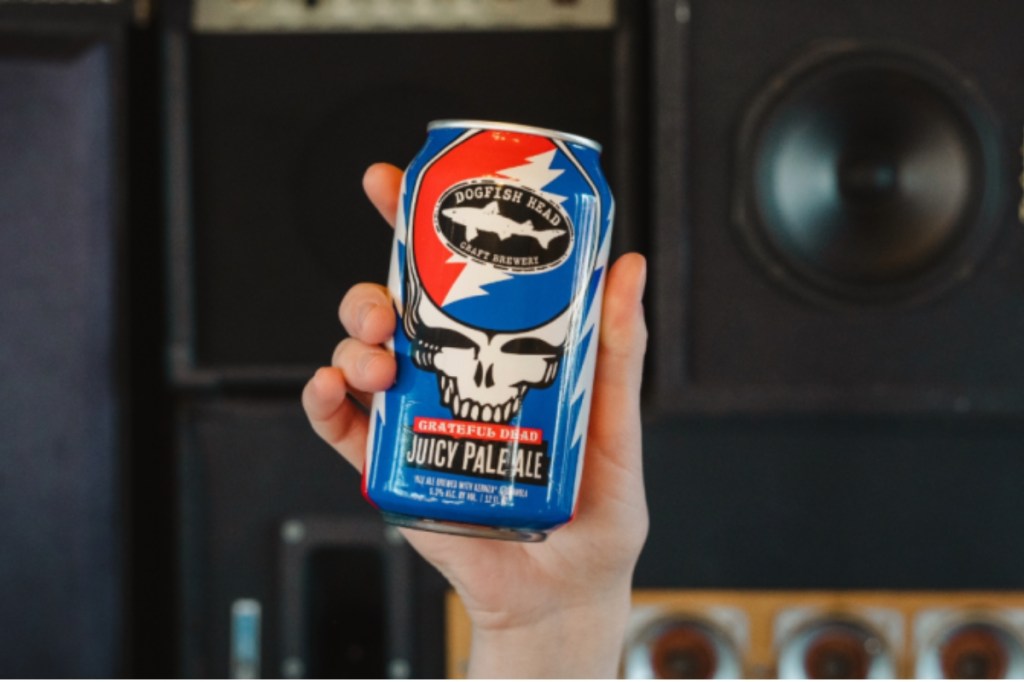
Dogfish Head Brewery -

Screenshot: YouTube/Ko-Ko
